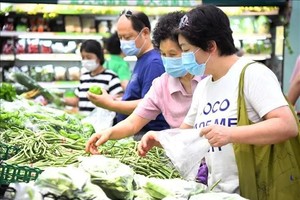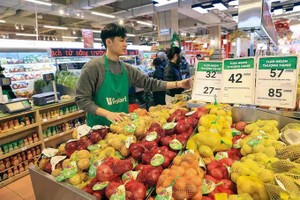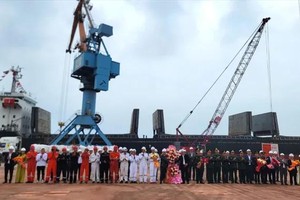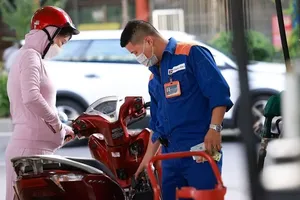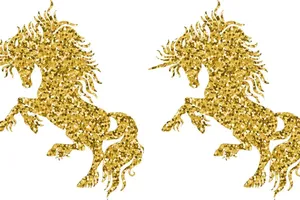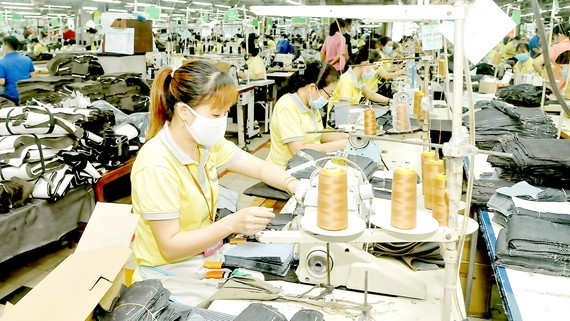
Mr. Ngo Xuan Nam, Deputy Director of Vietnam Sanitary and Phytosanitary Notification Authority and Enquiry Point (SPS) under the Agriculture and Rural Development Ministry, informed that since the beginning of this year, his office has received 57 announcements from WTO members that can directly affect Vietnam’s agricultural, forestry, and fishery exports. These include regulations on food safety and phytosanitary certification.
For instance, the US is going to adjust the allowed residue level of pesticides on agricultural and aquacultural products like banana, mung bean, coffee, packed or unpacked tea. Canada has a similar plan on raw and processed produce. The EU is adding regulations on infectious disease prevention, control, and elimination in processed food.
Other markets such as Taiwan, Turkey, Russia, China are also adjusting their quarantine management measures for imported animals and plants, their monitoring procedures for sanitary and epidemic factors at the customs offices along borders. They carry out more tasks to better track the origin of imported goods and label them accordingly before distribution. They also introduce new limits for contaminants in food, supplements, and additives.
Many businesses agree that this trend of tightening TBT in the world is rational to ensure the medical safety of citizens as well as reducing the competitiveness of imported goods compared to domestic ones since with a free trade agreement (FTA), several imported products enjoy a preferential tax of 0 percent.
Deputy Director of the Authority for Agricultural Product Processing and Market Development Le Thanh Hoa suggested a closer cooperation among export businesses to improve manufacturing procedures, seek and expand clean material areas, support one another as to legal matters like trade remedies lawsuits, raise the awareness of technical requirements for exports in all steps of food processing, focus more on product quality.
More importantly, there must be a collaboration mechanism between the state management and export enterprises to ensure food safety for exported goods.
Chairman of Vietnam Textile and Apparel Association Vu Duc Giang stated that in order to expand their international markets, enterprises have no choice but to satisfy all technical demands from buying nations. They must be proactive in monitoring any regulation changes and adjust accordingly.
For example, US buyers asked that Vietnamese textile companies ensure green production, taking into account recycling generated waste, using recycled energy and environmentally friendly fabric.
Aware of that, many domestic businesses in the field proactively approach international financial and environmental organizations to create a transformation plan to green production. This results in the maintenance of export turnovers increase of 10 percent each year.
Deputy General Secretary of the Vietnam Association of Seafood Exporters and Producers Nguyen Hoai Nam shared that technical barriers exist the most in food processing industries.Nevertheless, Vietnam is still in the international top-10 countries of agricultural and aquacultural exports, being considered one of the five major food resources in the world. This has shown the timely adaptation ability of domestic businesses.
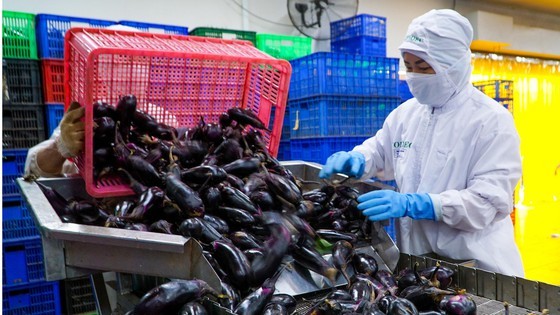
The concern at the moment is that it is gradually harder to obtain clean materials, leading to many companies being unable to process orders of their international clients, and thus reducing their prestige.
More seriously, SPS Deputy Director Nam said that some countries issue new regulations to come into effect after a very short time of 60 days, making domestic enterprises unable to keep up with. The result is a withdrawal of exports although the customs clearance has been finished. One typical instance is the withdrawal of made-in-Vietnam instant noodle exports to the EU recently due to exceeding the allowed residue level of ethylene oxide.
Other produce enduring a similar state is dragon fruits, mangoes, star apples exported to Japan, the US, or the Republic of Korea. Instead of using a co-certification or random check measures, these produce kinds have to undergo more frequent pesticide residue examinations.
Another worry of export businesses is trade remedies on Vietnamese exports (textile, wood, steel, plastic products). Statistics from the Trade Remedies Authority of Vietnam reveal that there are now more than 200 trade remedies lawsuits, posing the risk of losing international market shares of Vietnam.
